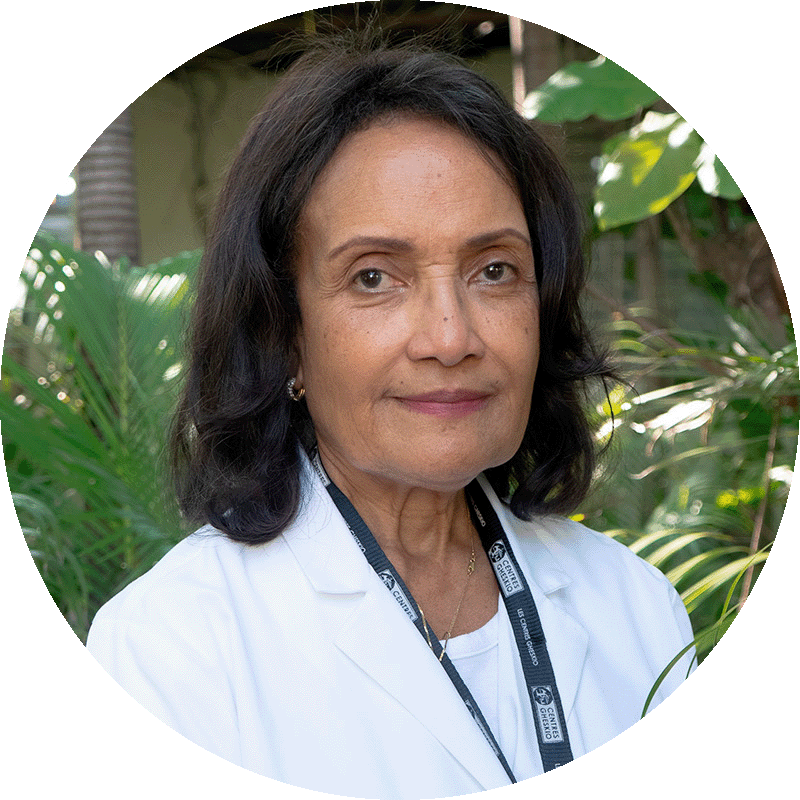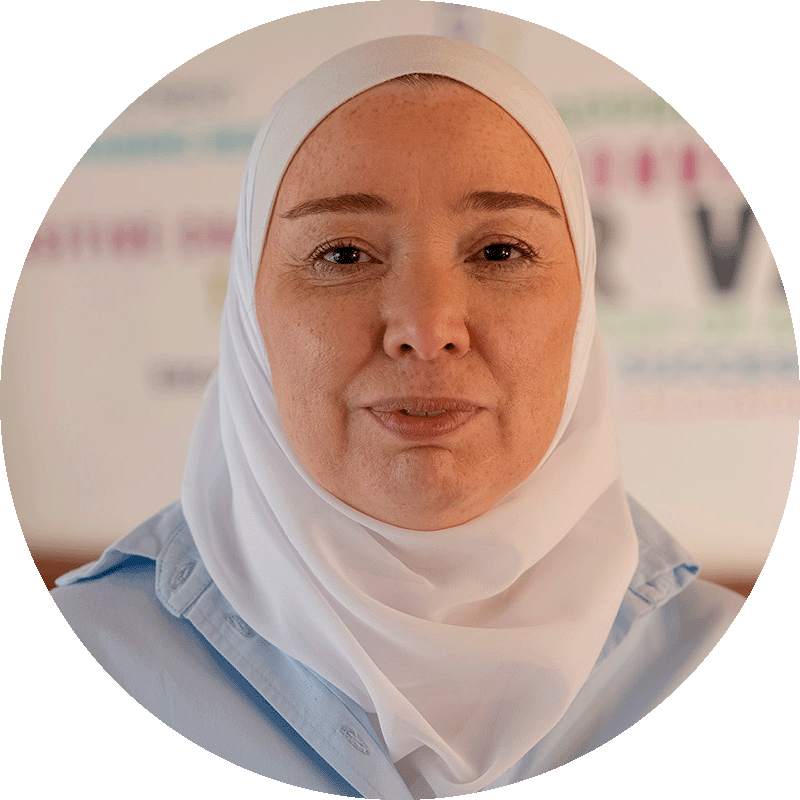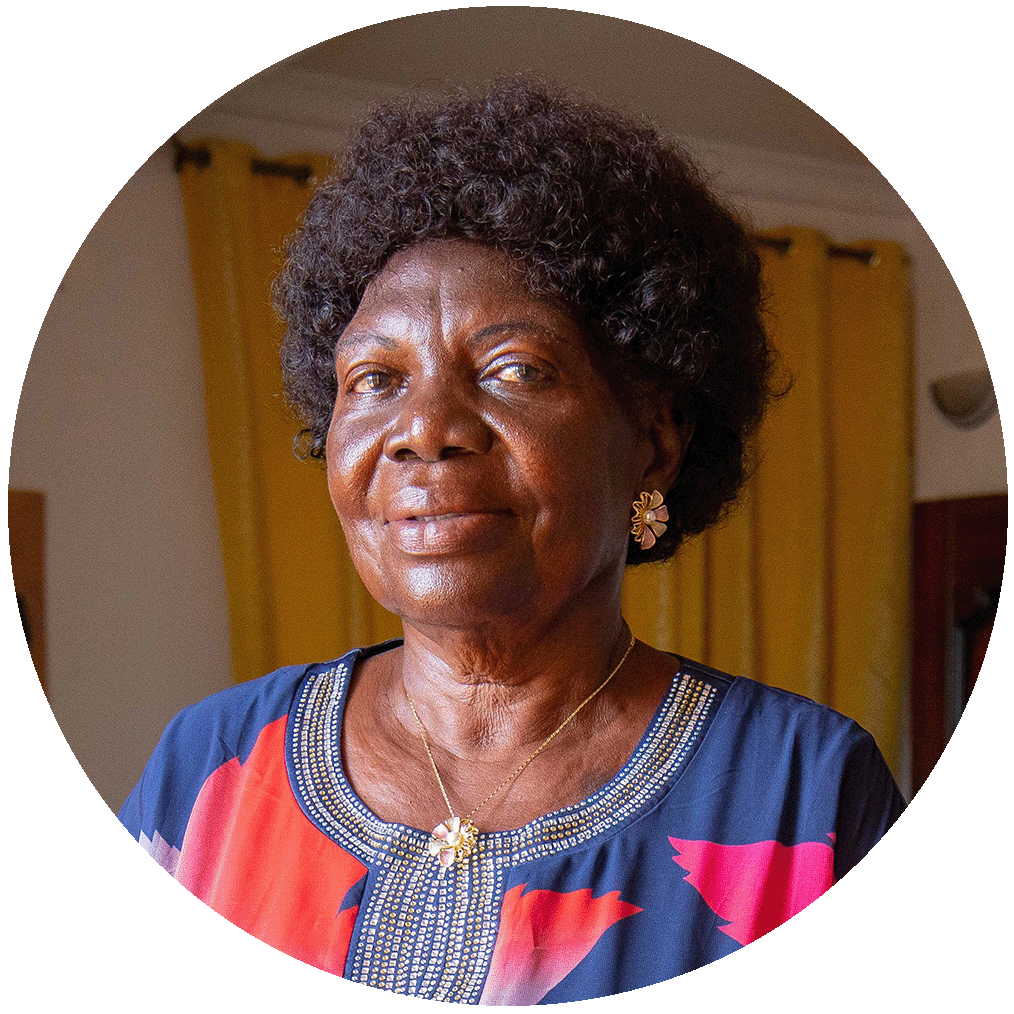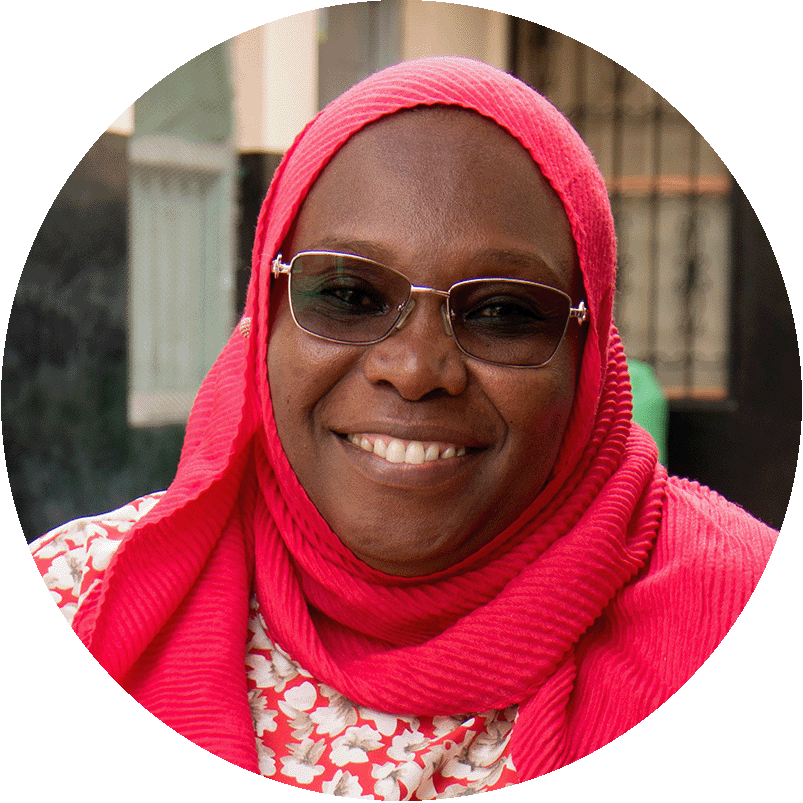
Dr. Marie-Marcelle H. Deschamps
Dr. Marie-Marcelle Deschamps is the deputy executive director, the head of the women's health program, and the manager of the clinical research unit of GHESKIO Centers in Port-au-Prince, Haiti. GHESKIO works with the Haitian and U.S. governments, Weill Cornell Medical College, UNICEF, Merieux Foundation, and other institutions to provide health care and humanitarian support to Haiti's most vulnerable populations. Deschamps has received national and international recognition for her contributions over many years to HIV/AIDS care and poverty alleviation.
The devastating 2010 earthquake and Haiti’s sociopolitical unrest over the past five years — including the brutal assassination of Haitian President Jovenel Moïse in 2021, armed gang violence, sexual violence, kidnappings and other crimes — have destroyed the social fabric throughout much of Haiti. In the city of Port-au-Prince, where gangs terrorize and rule over large portions of the population, women and children are particularly vulnerable to gang rape, kidnapping and random killings. In this environment, Deschamps works with individuals and families to address conditions that impact not only the health and well-being of the population but also drive cycles of violence.
Deschamps understands that changing community attitudes and norms requires an inclusive, multi-faceted, holistic and comprehensive approach involving education, collaborative communication and innovative strategies within the community. She introduced a global health model to GHESKIO, offering essential services to female heads of family and rape survivors, as well as access to health services, treatment for malnourished children, sanitation, job opportunities, and economic development for women to start small businesses. With 60 percent of the country facing food insecurity, Deschamps developed simple yet lifesaving and life-changing interventions by providing MONCASH transfers and food kits for 20,000 beneficiaries.
Deschamps is a strong advocate for education, viewing education as an important foundation that is often the root cause of either positive change or delinquency. Annually, more than 20,000 families have been beneficiaries of the primary and vocational schools she helped to create in 2010. Today, 380 children attend GHESKIO's campus primary school annually and more than 2,000 scholarships have been provided to other children to pursue their education. These services give students a sense of structure and direction with a place to discuss, learn and play that have helped to shift mindsets and attitudes. Her interventions take guns away from adolescents and arm them instead with marketable skills and hope for future generations.
Deschamp's commitment and ties to her community have helped to rebuild the social fabric. She has encouraged community leaders’ participation in outreach for social support programs and worked with the community advisory board to promote community empowerment and peace. Her efforts have led to training of community health agents and leadership opportunities for thousands of health workers living in violent neighborhoods.
Haiti
- Deputy Executive Director, Les Centres GHESKIO


